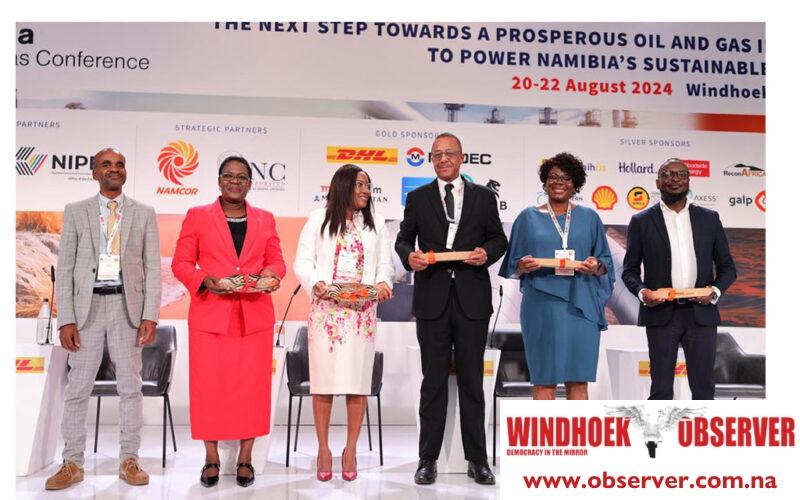Martin Endjala
The deputy minister of Mines and Energy, Kornelia Shilunga, has warned players in the oil and gas industry against fronting Namibians into positions.
She made these remarks during the 2024 Namibia Oil and Gas Conference that started in Windhoek on Wednesday.
“Ideally, all vacant positions should be advertised in local media to ensure that Namibians, who meet minimum requirements from all corners of the country, have an equal employment opportunity,” she said.
This year’s conference theme is “The Next Step Towards a Prosperous Oil and Gas Industry.”
Shilunga said she has learnt that some oil industry players are fronting Namibians in positions, and some are even reluctant to employ Namibians.
To achieve local prosperity from oil and gas exploitation, Shilunga said oil industry players must contribute to the country’s capacity building and procure their goods and services from local suppliers as much as possible.
She further said that players expect oil companies to recruit talented Namibians to ensure the transfer of meaningful skills and knowledge, which is disappointing.
She added that players in the oil industry are expected to be transparent and fair in their recruitment processes.
Shilunga noted that a large portion of in-country value creation in the oil industry comes from supply chains.
She said oil industry players should procure Namibian goods and services while stating that they are finalising the local content policy.
“We expect all oil industry players to comply with these provisions. Our local content policy will just fortify the existing local content provisions. The aim is not only to align our local content policy with international best practices but also to deliver more business and more jobs for our people,” she said.
Shilunga also urged the oil industry players to ensure local prosperity through compliance, transparency, equity and mutual interest.
She mentioned many examples worldwide whereby oil and gas exploitation has negative socio-economic and political impacts.
At the same time, she cautioned that Namibia should not take the resource curse lightly and must learn from others’ experiences.
“The discovered oil and gas should be exploited in such a manner to make Namibia energy independent, and we should strive to ensure that oil and gas production does not distort our country’s economy,” she argued.
Shilunga advocates for prioritising local value creation to ensure efficient and cost-effective processing of produced oil and gas within the country.
She urged the national oil company (NAMCOR) to safeguard the state’s commercial interest in all oil and gas activities.
Like most oil-rich nations, Shilunga said the government’s vision is to build a technically and financially capable national oil company that can effectively manage the country’s petroleum resources on behalf of its citizens.
Hence her call for NAMCOR to play a key role in safeguarding state interests in petroleum licences.
“We believe that this would enable NAMCOR to bring about oil prosperity for all Namibians by fuelling our economic growth and providing revenue to the state,” she said.
During the recently concluded 2024 mining expo, Zebra Kasete, the president of the Chamber of Mines, called for a shift in mindset by tapping into skills development for young people to prepare Namibians for the oil and gas industry.
He said the government should stop only looking to benefit from taxes and loyalties and use the funds to develop new skills in readiness for the oil and gas industry.
According to Jason Kasuto, chairman of the Economic Association of Namibia (EAN), commercialisation of these discoveries is still necessary.
He questioned whether Namibia can absorb, accommodate, and service the requirements of the oil and gas industry to create real, visible value in the country.
“Once we answer that fundamental question and focus on the four core elements—knowledge and technology transfer, infrastructure, capital mobilisation, and strategy—in-country value strategy. We will then start the journey towards addressing the theme of this conference,” he said.
Namibia Investment Promotion and Development Board (NIPDB) chief executive officer Nangula Uaandja implores the locals to craft their journey in this industry.
“We need to decide where we want to go. Are we going to sit down and wait to be told there is oil that can be produced commercially, and then we start planning, or are we going to plan as if there is oil?” Uaandja questioned,” she said.




